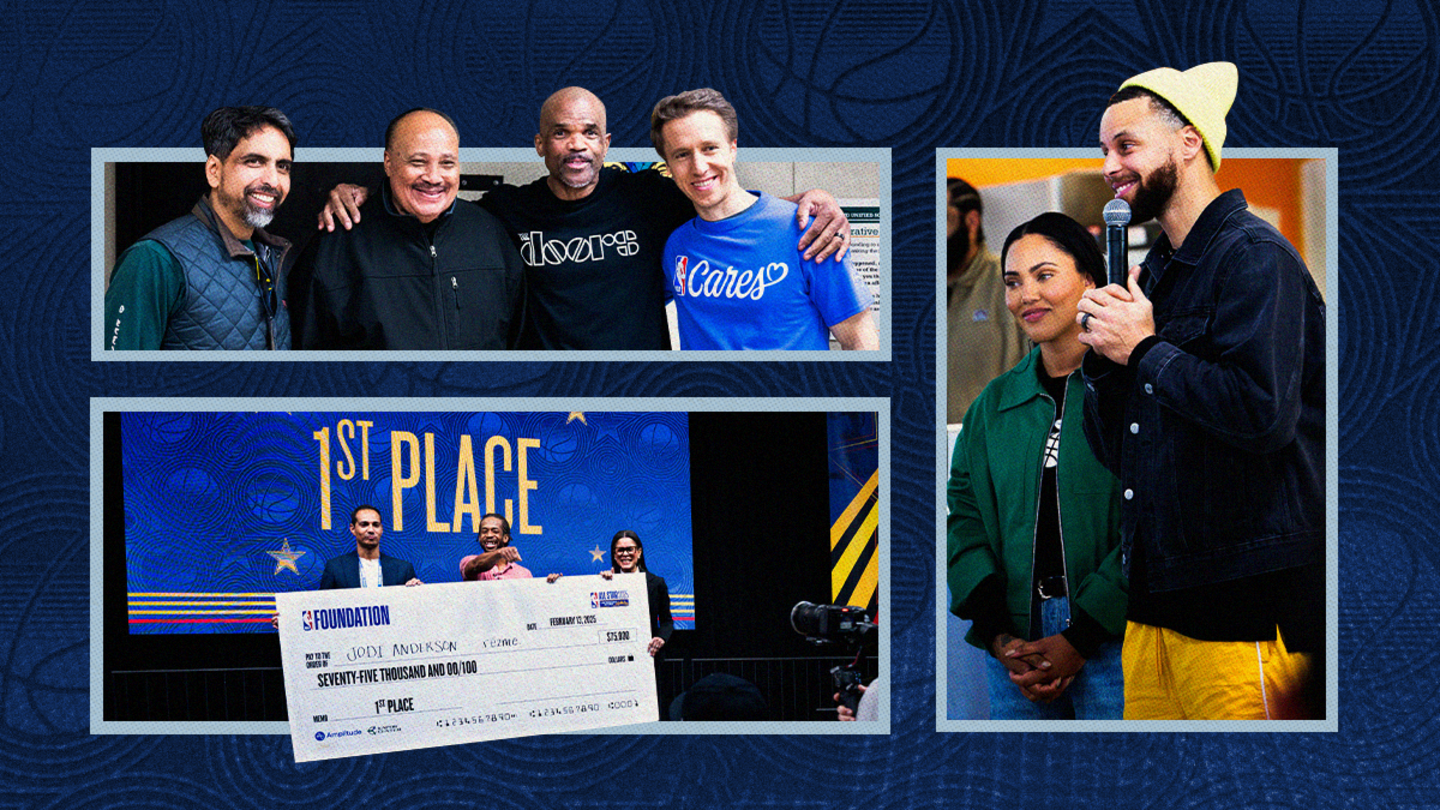The new year is a great time for nonprofit leaders to start thinking about goals and how to achieve them. Whether you're just starting out or have been around for a while, it's always good to take stock, ask questions, and think about what has worked for others.
The first tip for a successful nonprofit leader is to ask pertinent questions. Consider things like:
- How is my approach to this issue unique?
- Am I clear about what I'm trying to achieve and how I'll assess that?
- What capabilities do I need to get the job done?
Getting these answers will get you pretty far, but building a successful nonprofit takes a bit more. Here are four key tips from leaders who have been there, answered these questions (and more) along the way, and built something they can share.
1. "Get comfortable not knowing everything."
Educators Yamila De Leon and Sarah Tavernetti taught at conventional K-12 schools, where they felt the one-size-fits-all approach didn't allow every student to realize their full potential.
De Leon and Tavernetti created Bloom Academy in the wake of the pandemic as the first in a new wave of self-directed learning centers in Las Vegas. At Bloom, which is supported by the VELA Education Fund, there is no mandatory or predetermined curriculum. Staff, parents, community volunteers, and students collaborate. It wasn't easy to get people on board with something so new and different.
De Leon and Tavernetti started doing their own research, visiting learning centers across the country, and taking notes. "We were not businesswomen. We were not experienced in nonprofits," says Tavernetti. "We are just two passionate educators."
Their passion, honesty, and approach attracted investors, advisors, and parents alike who helped them build the school they envisioned. They measure their success by the confidence they build in their young learners and the parents who continue to send their children and believe in the program. It's thriving.
Tavernetti's biggest piece of advice for building a successful nonprofit is this: "Be comfortable not knowing everything, and definitely, reach out to people who are experts in what you're doing."
2. "Keep going."
International best-Selling author Colum McCann is the co-founder of Narrative 4, a global nonprofit focused on storytelling and the way they can increase empathy and connection. He believes "we can change the world with a simple act of telling one another's stories."
Narrative 4 has been wildly successful. Schools and students who implement the program have been shown to have improved communication skills, more positive relationships with teachers, and higher attendance levels and better grades
McCann says showing up is half the battle. "We gotta get up off our arses, and we have to get out there and do something 'cause it's never gonna happen unless we're there."
McCann explains, "It's when we go out and realize that our voice is absolutely essential to the music of the choir. The ones who are gonna change things are the ones who say, 'Wow, this is tough. This is complicated. Let's understand one another, and then, let's make the difference on the ground.'"
McCann's key piece of advice to anyone looking to chart their own path like this is to understand a lot of it won't be easy. There will be a fair amount of failure or times when things don't work out the way you envisioned.
"Some of this is difficult. It's not as easy as people make it out to be." Still, you must push on. Or, as McCann makes clear: "The only thing we have to be afraid of is apathy or indifference."
3. "Work from the problem, not the solution."
Says Cliff Nellis, the founder and executive director of the Lawndale Christian Legal Center (LCLC), a nonprofit that connects people under 25 with both free legal services to face past mistakes and a supportive community to empower them to transform their lives going forward.
LCLC is located in the North Lawndale neighborhood of Chicago, where more than half of its lawyers and board members grew up and all of them currently reside. This, in itself, is a striking difference from many organizations that turn to outside experts to try to fix problems in local communities that they've never experienced themselves.
"The people you're serving need to be the driver of change, because at the end of the day, if the community isn't driving it and owning it — it's not going to last," says Nellis. "Those who are closest to the problem are going to offer the solution for the problem."
Nellis says this bottom-up approach is the key to LCLC's success. Since opening its doors, LCLC has helped hundreds of young people go on to lead full lives. In 2019 alone, they served 309 clients. Of those, 92% have steered clear of the criminal justice system ever since, while 69% of non-school-age clients got a job or vocational training within nine months of working with LCLC.
Nellis affirms, "[When] the people most impacted, most knowledgeable, lead and design the solutions, then everything's possible."
4. "Reconnect with your why."
In 2006, Scott Strode launched The Phoenix, a sober active community that harnesses the power of connection to empower people to overcome substance abuse.
From the outset, Strode knew he wanted The Phoenix to be a national nonprofit. "But in those early days," he says, "I just always felt like we couldn't move fast enough or grow fast enough or reach enough people fast enough."
The challenge eventually became clear: While The Phoenix's results were striking – including relapse rates that were half those of the best treatment centers in the country – the story wasn't getting out in a way that inspired others to rally around this cause.
Fast forward to today, and The Phoenix has scaled from a handful of locations a decade ago to 184 communities across 45 states. They've served more than 160,000 people nationwide and are on track to reach one million people annually in the next few years.
The difference, Strode says, is that "in those early days, we were maybe too quiet about what's so special about our program." It was when they began focusing not only on what The Phoenix is and how it works, but also the why behind it, that people were drawn to his mission in ways they've never been before.
Strode's advice to nonprofit leaders: "You're going to encounter these times when things get really tough and you're not going to believe it's possible to do what you're trying to accomplish. I'd encourage you just to step back and reconnect to the why."
The Stand Together community partners with changemakers who are tackling the root causes of America’s biggest problems. Explore ways you can partner with us.




